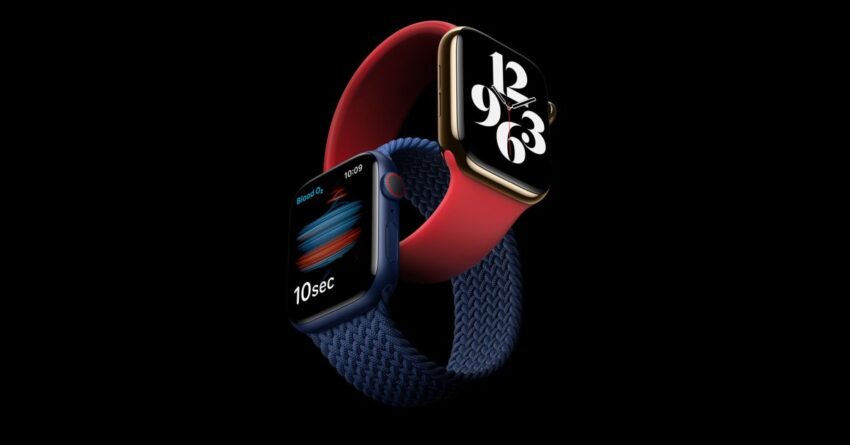
apple hit with 634 million verdict in A federal jury has ruled in favor of Masimo, awarding the company $634 million in damages in a patent dispute with Apple over the blood oxygen monitoring feature of the Apple Watch.
apple hit with 634 million verdict in
Background of the Case
The legal battle between Masimo and Apple has been ongoing for several years, with the core issue revolving around patent infringement related to the Apple Watch’s blood oxygen monitoring capabilities. Masimo, a medical technology company known for its innovative pulse oximetry solutions, claimed that Apple had unlawfully utilized its patented technology without permission. The patent in question pertains to low power pulse oximeter features, which are crucial for accurately measuring blood oxygen levels.
The jury’s decision, delivered in a federal court in California, marks a significant victory for Masimo, underscoring the importance of intellectual property rights in the technology sector. The case has drawn considerable attention not only for its financial implications but also for its potential impact on the future of wearable health technology.
Details of the Verdict
The jury concluded that Apple had indeed infringed on Masimo’s patent, which raises critical questions about the classification of the Apple Watch. A key point of contention was whether the Apple Watch could be categorized as a “patient monitor” as defined in Masimo’s patent. This classification is essential because it determines the applicability of the patent to the Apple Watch’s functionalities.
Masimo’s argument hinged on the assertion that the Apple Watch’s blood oxygen monitoring feature operates similarly to its own patented technology, which is designed for medical use. The jury’s ruling indicates that they found merit in Masimo’s claims, leading to the substantial damages awarded against Apple.
Implications for Apple
This verdict poses significant implications for Apple, a company that has increasingly integrated health monitoring features into its devices. The Apple Watch has become a cornerstone of Apple’s health technology strategy, providing users with a range of health-related functionalities, including heart rate monitoring, ECG readings, and blood oxygen level tracking. The loss in this patent case could hinder Apple’s ability to continue developing and marketing these features without facing further legal challenges.
In addition to the immediate financial impact of the $634 million verdict, Apple may also face increased scrutiny regarding its intellectual property practices. The company has built its reputation on innovation, and any perception of infringing on other companies’ patents could damage its standing in the tech community.
Masimo’s Position and Future Prospects
For Masimo, the jury’s decision is a validation of its intellectual property and a significant boost for its business. The company has long been a leader in the field of non-invasive monitoring technologies, and this ruling reinforces its position in the market. Masimo’s CEO, Joe Kiani, expressed satisfaction with the verdict, emphasizing the importance of protecting innovation in the medical technology sector.
The financial award will likely provide Masimo with additional resources to invest in research and development, potentially leading to new innovations in health monitoring technology. This could enhance its competitive edge against larger players like Apple, who dominate the consumer electronics market.
The Broader Impact on the Tech Industry
This case is not just significant for Apple and Masimo; it also has broader implications for the technology industry as a whole. Patent disputes are common in the tech sector, where rapid innovation often leads to overlapping technologies and features. The outcome of this case may set a precedent for how similar disputes are handled in the future, particularly in the realm of wearable technology.
As companies increasingly venture into health monitoring and medical technology, the potential for patent infringement claims will likely rise. This ruling could encourage other companies to pursue legal action against larger firms if they believe their patents are being infringed upon. Consequently, the tech industry may see a shift in how companies approach innovation, with a greater emphasis on ensuring that their technologies do not infringe on existing patents.
Stakeholder Reactions
The verdict has elicited a range of reactions from stakeholders in the technology and healthcare sectors. Investors in Masimo have reacted positively, with the stock price experiencing an uptick following the announcement of the verdict. This reflects a renewed confidence in Masimo’s business prospects and its ability to compete against larger competitors.
Conversely, Apple’s investors may be more apprehensive about the implications of the ruling. The potential for further legal challenges and the financial burden of the damages awarded could weigh on Apple’s stock performance in the short term. Analysts will be closely monitoring how Apple responds to this verdict and whether it will seek to appeal the decision.
Future Legal Considerations
As the dust settles from this verdict, both companies may need to consider their next steps. Apple has the option to appeal the jury’s decision, which could prolong the legal battle and introduce further uncertainty regarding the future of its health monitoring features. An appeal could also provide Apple with an opportunity to challenge the jury’s interpretation of the patent and its applicability to the Apple Watch.
On the other hand, Masimo may seek to leverage this victory to negotiate licensing agreements with Apple or other tech companies that utilize similar technologies. Such agreements could provide a new revenue stream for Masimo while allowing Apple to continue offering its health monitoring features without the risk of further legal repercussions.
Conclusion
The $634 million verdict against Apple in its patent dispute with Masimo highlights the critical importance of intellectual property rights in the technology sector, particularly as companies increasingly integrate health monitoring features into their devices. This ruling not only validates Masimo’s claims but also raises important questions about the future of wearable health technology and the potential for further legal challenges in this rapidly evolving field.
As both companies navigate the aftermath of this verdict, the implications for the tech industry as a whole remain to be seen. Stakeholders will be watching closely to see how this case influences future patent disputes and the strategies that companies adopt to protect their innovations.
Source: Original report
Was this helpful?
Last Modified: November 16, 2025 at 2:36 am
6 views















